Vicky Regan, the Founder and Principal of Hone Leadership, firmly believes in one core principle: “True growth as a leader starts with aligning your mindset with your ambitions and goals.”
Regan founded Hone Leadership after a 25-year career in leadership roles within the tech sector, from fast-paced startups to public companies. This journey deepened her understanding of leadership dynamics and challenges, especially for women.
Alongside her career, she founded a mentorship organization for women in tech, emphasizing the importance of supportive networks, and continued mentoring in women’s organizations throughout her career.
This combination of leadership experience and dedication to mentorship made her transition to leadership coaching a natural step. As a coach, Regan leverages her expertise to help leaders refine their skills and drive meaningful impact within their organizations.
Hone Leadership, founded in 2021 at Half Moon Bay, California, offers a full range of services to support individuals and organizations, from 1:1 and small cohort coaching to workshops and leadership development training.
Mirror Review recently spoke with Regan, who says it’s encouraging to see that leadership coaching now appeals to people at all career levels. Gone are the days when coaching was seen only as an executive luxury, she said. “Today, early-career managers, seasoned professionals, and even individual contributors seek out coaching to address specific areas of concern or to propel themselves to the next level of their careers.”
Q. Based on your experience, what are the top 3 most pressing leadership challenges businesses face today?
Ans: In my experience, there are three key challenges that leaders in today’s business world are grappling with:
- Change Management: In recent years, businesses have undergone significant changes, such as the pandemic and the shift to remote work. Therefore, effective change management is crucial. Leaders need to adeptly guide their organizations through new markets and strategies.
Employee uncertainty can be very unsettling. Fear of the unknown can lead to a lack of confidence in leadership and the company’s future, affecting productivity, morale, and performance, and potentially leading to attrition.
Successful leaders in change management are excellent communicators who inspire confidence in their teams. They provide transparency; address concerns openly, highlight opportunities, and involve employees in the process. They cultivate a shared vision and growth, while poor execution can destabilize the entire organization.
- Employee Development and Growth: As the workforce evolves, understanding employee needs is vital for engagement, retention, and succession planning.
Leading multigenerational teams is an essential aspect of modern leadership and can effectively address succession planning challenges. With approximately 30% of current leaders (boomers) expected to retire within the next 5-10 years, businesses face potential disruptions without a solid plan in place.
Millennials, highly motivated by professional development and growth opportunities, are key to this strategy. Crafting a strategic succession plan that caters to these motivations can ensure a smooth leadership transition and business continuity.
- Leading Diverse and Remote Teams: With the rise in workforce diversity and remote work, leaders must develop skills to promote collaboration and inclusivity across various locations and cultures. Agile and adaptable leaders in our post-pandemic business environment can better support remote and hybrid teams.
Today, diversity and inclusion go beyond recruitment to include clear promotion paths to leadership, so that all employees can see and achieve a future.
Q. Could you elaborate on the leadership development services that Hone Leadership offers? What makes your coaching services unique?
Ans: Hone Leadership provides a comprehensive range of services to support both individuals and organizations. Our offerings include one-on-one and small cohort coaching, workshops, and leadership development training.
While we cater to a diverse clientele, we specialize in supporting women leaders in business and technology.
Our approach is tailored to the specific needs of each client. However, two programs are particularly popular: Positive Intelligence and my proprietary PIVOT Program.
Positive Intelligence is designed to help clients break away from negative patterns and shift towards a more confident and optimistic mindset.
The PIVOT Program, on the other hand, is geared towards those navigating a career transition. It provides a structured framework to guide clients through what can often be a confusing time, laying out a roadmap to reach their end goal. This program includes personalized strategies and support to help clients achieve their objectives. It has proven particularly useful for clients considering career transitions, even those in the early stages of their careers.
When working with organizations, in addition to coaching their leaders, we also offer outplacement services for exiting employees and spot coaching programs for a broader range of employees, typically recommended by a manager. One area that organizations find particularly beneficial is our assistance in developing their internal mentoring and Employee Resource Group (ERG) programs.
The most common leadership challenge I’m asked to help with, whether for individuals or teams, revolves around communication. Effective leadership hinges on the ability to communicate with clarity and confidence—whether managing conflicts, establishing executive presence, or gaining alignment. These skills are crucial for influencing others and driving positive outcomes.
Q. Being at the helm of the company, what are your primary roles and responsibilities? We’d also love to hear about your notable awards and achievements.
Ans: As the founder and principal of Hone Leadership, my primary role involves serving as the Leadership and Executive Coach for individual clients, as well as a coach and consultant for organizations. I hold an advanced coaching credential (PCC) from the International Coaching Federation (ICF) and a specialized certification in Executive and Leadership Coaching.
In addition to these roles, I serve as a mentor, author, contributor, and speaker for various mentoring and professional women’s organizations. This involvement has led to industry recognition, including the Female Voices Award and a Top 5 Female Coach ranking in 2023.
Hone Leadership is a U.S. Government Registered Entity Contractor and a Certified Woman-Owned Small Business, championing diversity and inclusion. Each year, I dedicate a portion of my practice to discounted or pro bono work, offering coaching to non-profits and individuals focused on driving positive change within their industries.
Q. Tell us how your coaching has helped your current or previous clients.
Ans: My coaching focuses on helping clients achieve significant professional milestones. This includes securing promotions, tackling career challenges, and progressing in their organizational succession plans.
I guide them through targeted development that aligns with their ambitions, whether these issues are identified by themselves or their leaders. In some cases, clients are looking to make career transitions. Regardless of their goals, this strategic approach not only addresses immediate needs but also lays the groundwork for their future success.
Q. When motivating their team, what common mistakes do leaders often make, and how can they avoid them?
Ans: One common mistake in leadership is not providing enough feedback and recognition. When employees feel ignored or underappreciated, their motivation can plummet, leading to disengagement and eventually turnover.
As a leader, it’s crucial to provide feedback that’s not only timely but also constructive and actionable. Also, regularly acknowledging the efforts and achievements of your team can greatly enhance morale and engagement.
Secondly, leaders can sometimes fall into the trap of using the same motivational tactics (overgeneralizing) for everyone, which can overlook the unique needs and dynamics of individual team members.
People are motivated by different things, whether it’s career advancement, skill development, or achieving a better work-life balance. By conducting regular one-on-one meetings, leaders can understand what truly drives each member of their team, which helps in developing more effective and personalized motivational strategies.
Lastly, it is a lack of clear goals. A team without clear goals can quickly become directionless and demotivated. Leaders need to set specific, well-defined goals and revisit them often to keep everyone on track.
Aligning these goals with the broader mission of the organization also helps team members understand how their work contributes to the larger picture, which can be a powerful motivator.
Q. How do you manage to have a perfect work-life balance? What are your hobbies/interests beyond the cabin?
Ans: While I can’t claim to have completely mastered the art of work-life balance, I do believe I’ve achieved a harmonious blend of the two. Contrary to the adage, “If you do what you love, you’ll never work a day in your life,” I find that even though I love what I do, I still work quite a bit. The key difference is that I derive real happiness from my work. I’m not stressed, anxious, or burnt out. I’m genuinely content, but I’m also aware that I’m working. Making this distinction helps me maintain harmony, balance, and boundaries in my life.
As for my interests beyond work, I have a deep love for traveling and being in nature. I always have a mental list of the next countries I want to visit! In fact, my love for nature has led me to become a Certified California Naturalist.
Q: As an experienced leadership coach, what are the 3 tips you would like to give to modern-age business leaders?
Ans: Certainly, I believe the following three principles are crucial for any leader in today’s dynamic business environment:
- Embrace Adaptive Leadership: Today’s leaders must be ready to change course quickly. Adaptability is crucial—not just in responding to immediate challenges but also in being receptive to feedback and different viewpoints. This flexibility allows you to smoothly navigate changes, seize opportunities as they arise, and fortify your team.
- Create a Feedback Culture: Feedback should be the lifeblood of your organization. Encourage everyone to communicate openly, whether it’s top-down, bottom-up, or peer-to-peer. When leaders demonstrate this openness, it significantly enhances the organization’s health and improves team dynamics.
- Cultivate Emotional Intelligence: Never underestimate the power of emotional intelligence. Skills like active listening, empathy, and emotional regulation are vital for connecting with and motivating your team. Leaders who manage their emotions effectively and understand their team members’ feelings can maintain composure in stressful situations and build a committed, collaborative team based on trust.















 The Inc Media is one of the most renowned global Online Business Magazines, that carries news stories about entrepreneurship, small business management, and business. Being a global business magazine, we carve for influential stories and try to take them globally to uplift the business standards and educate the people about new innovations in the business world...
The Inc Media is one of the most renowned global Online Business Magazines, that carries news stories about entrepreneurship, small business management, and business. Being a global business magazine, we carve for influential stories and try to take them globally to uplift the business standards and educate the people about new innovations in the business world...